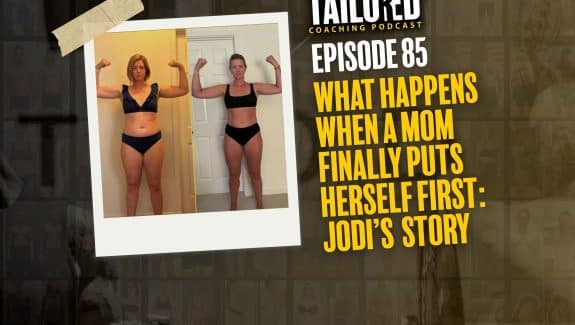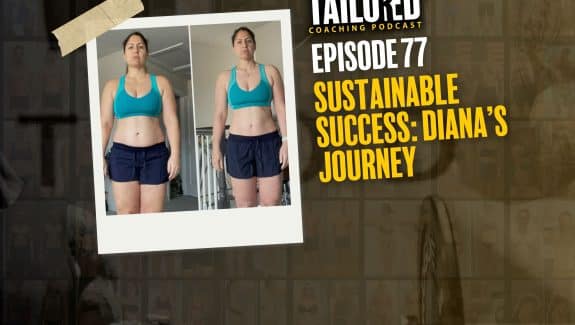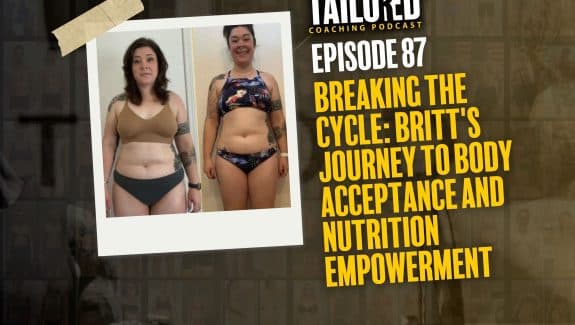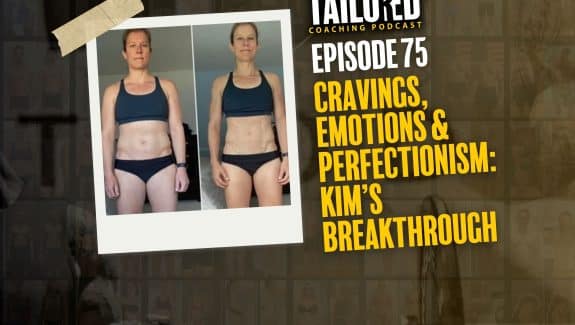Over 15-million google searches tells us that this is one of the most commonly asked questions in regards to dieting; What is the easiest diet to follow?
And I completely understand why, since today’s world is all about convenience. We’ve created a society that thrives on things being done for us, removing effort, eliminating patience, and immediate gratification.
So why on earth would dieting not be the same?!
Well, for many reasons. But the primary reason is due to sustainability and what is required in order to make a diet sustainable. See what makes a diet sustainable, is often the opposite of what makes it work rapidly, require less work or thought, and ultimately easily. Now that doesn’t mean it can’t be simple; in fact, it should be VERY simple. Science is simple, if you understand it correctly. But work is required and time needs to be invested, therefore it’s not always easy.
But that’s not actually what I’m here to tell you or provide you with today. Today, I’m going to break down all the diets you are tempted to try because you probably THINK they are simple, easy-to-follow, and fast-acting, but they’re completely unsustainable and overly hyped by great marketing.
Then, I will give you an actually sustainable dietary system that allows for better adherence, flexibility, consistency, and adjustments along the way – ultimately leading to nutritional autonomy, hopefully, so that you can get results now and keep them for later on (unlike the fad diets that tempt you so often).

How To Find The Easiest Diet To Follow
The answer to this question is completely individualized, so I cannot tell you with 100% absolute certainty. But I can give you an insight into what I’ve seen work with thousands of people over the years and what I’ve personally concluded with, after “trying it all” – like I’m sure you have, too.
The easiest diet to follow is the diet that covers all these bullets:
- Flexibility: You want to find a diet that allows you to limit, but not sacrifice, social events, so that you can continue enjoying life while also still seeing results.
- Adjustability: You will hit a plateau. Plain and simple. And a great diet plan is one that allows you to adjust it, to work through those plateaus and continue progressing.
- Adherence: If you do not enjoy the diet, if you resent the diet, if you don’t have any energy while on the diet, or if you just generally have poor biofeedback while following the diet (and we’re not talking about the last couple weeks of contest prep here, we’re talking your DAILY biofeedback throughout the diet)… it’s not the right diet for you.
- Health-Promoting: Yes, we want to train hard. Yes, we want to perform better. Yes, we want to look better. But we cannot forget that down the line, we also need to be healthier from the diet as well! And without that, your body will fight back.
- Education: If your diet doesn’t teach you about your body and the food you’re putting in it, you’re walking in the dark. You need to understand the processes of the diet in order to not only adhere to it – but build autonomy, so that you can be in control of your own diet (even if that means you need a coach now, you shouldn’t need one forever).
- Sustainability: This is the final bullet and the most important one, because without sustainability… Well, you can’t sustain the diet! But also, KNOWING its sustainable personally is one of the things that keeps you motivated to continue the diet. So if you’re following a diet that you know has a timeline associated with it, you will not easily stick to it even in the short term – because, what’s the point…?
To see how this fits into a complete transformation system, check out our [Ultimate Guide to Online Fitness & Nutrition Coaching].
Now, what you can do is print this out or write those down… this is your checklist next time you go to start a diet! This is going to stop you from starting a destructive diet OR help you properly audit a great diet to begin!
Sugar Free Diet Plan… Military Diet… Keto Diet… Paleo Diet… What Works?!
There are COUNTLESS diet plans out there with catchy names that promote and promise fantastic results, making it unbelievably confusing and difficult for the average person to make a smart decision with their nutrition.
But here’s the thing, run that checklist by any of those diets and see what you get…
- Sugar, Dairy Free, Gluten Free, or ANYTHING “Free”
- The Military Diet
- The Ketogenic Diet
- The Paleo Diet
- The Mediterranean Diet
- The Carnivore Diet
- The Vegan Diet
- Intermittent Fasting
First and foremost, if it has “the” before it… I’d say it automatically should throw up some concern for you.
A diet shouldn’t have a title, it should be a way of eating.
However, if we look at all these diet plans – they do have one single thing in common.
Restriction.
They all restrict or eliminate at least one thing, if not an entire group of foods. This is a problem that goes beyond health and into the psychological nature of dieting. Because as humans, we want what we can’t have. Now we have this restrictive dichotomy of nutrition, that tells us one food group is bad and one is practically holy.
But the reality is that this is completely false. Not only are there no super-foods that have special benefits or powers greater than any other food group, but there are also no bad foods that create complete dysfunction of health.
Are there foods that aren’t as healthy or nutrient dense? Of course! Anybody could tell you that an apple has more nutrients than an oreo cookie. But what these diets tend to do is put the nutrient value over the caloric content of a food, which is misleading and creates a false pretense of what creates successful changes in health and body composition.
Why Do Diet Plans Actually Work?
So now we need to answer the common follow-up question here… why do these diet plans actually work, then? Because they definitely do.
Calorie Deficit. Period.
All of these trendy diets restrict food groups, which also restricts your calorie intake. When we restrict calorie intake, we create a calorie deficit in our energy balance – which means we’re burning more calories than we’re taking in via food. This abides by the scientific principle and law of thermodynamics, which tells us that a caloric deficit will lead to weight loss by nature of physics and physiology. I break this all down, and more, in our free nutrition manual.
However in the marketing of these diets, they do not speak of calorie balance at all… just what foods to demonize, remove, and never eat again. Sometimes they’ll also add what super-power holding foods they suggest, as if those will magically speed fat loss up for you along the way.
Whereas research studies like the Twinkie Experiment (1), The McDonalds Project (2), or even The Rice Diet (3) all show a calorie deficit leading to weight loss, regardless of the type of foods you eat.
Is that me telling you to track your calories and just eat McDonalds every day? Absolutely not.
But it is me proving a point that when calories are controlled, you will more easily accomplish your body composition goals. What people also tend to neglect or not believe, is that despite only eating rice all day (literally) or having a twinkie each day or even eating McDonalds on a regular basis, but while also maintaining a calorie deficit to lose body fat, led to better blood work and health measures in these studies as well.
Meaning that despite eating “junk food” every single day, they actually improved their health as well and the reason for this is simple… it’s a higher risk factor to all-cause mortality, disease, and poor health, to have a high level of body fat on your body than it is to eat junk, enjoy a burger occasionally, or fill your diet with carbohydrates.
Which is also why I tell our clients as well as our audience, of this blog and the podcast, that you need to question every health benefit a diet provides and ask if it is actually just a calorie deficit causing the health benefit. More often than not, that’s the case.
Now I’m not going to say EVERY time this occurs, because there are plenty of individual situations where a very specific dietary protocol will be the most beneficial for an individual due to their specific case or situation. But in the general public and general context of diet trends, it’s often true.
Great example is intermittent fasting. It can be a great strategy to adhere to a calorie deficit, because you remove a full meal – making it very easy to eat less for most people, but that’s all it really is. There are some benefits when introducing long-term fasts, but we begin to split hairs when diving into these.
Even the main health benefits promoted by intermittent fasting guru’s, such as: insulin sensitivity, decreased blood sugar levels, improved triglyceride levels, and pro-inflammatory markers decreasing – ALL occur when consistently following a calorie deficit and losing body fat.
To back this up even more, from the alternative motive/side of things – all of the negative effects of intermittent fasting also occur when being in too low of a calorie deficit, staying in a calorie deficit for too long, or losing too much body fat! Things such as testosterone and IGF-1 hormone levels decreasing, cortisol (stress hormone) increasing, thyroid (T3) function decreasing, and furthering adaptive thermogenesis (metabolic adaptation).
So to summarize this particular section of the article, we can say that the number 1 thing leading to general weight and fat loss is a negative energy balance – i.e. a calorie deficit. But this also concludes the effectiveness of all fad diets being due to the creation of a calorie deficit and no special effect that the diet fad actually holds.
Which is unbelievably empowering, for you, because you now know that you do not need to follow any of these unsustainable fads to get the results you desire and deserve.
That begs the question… What should you do?
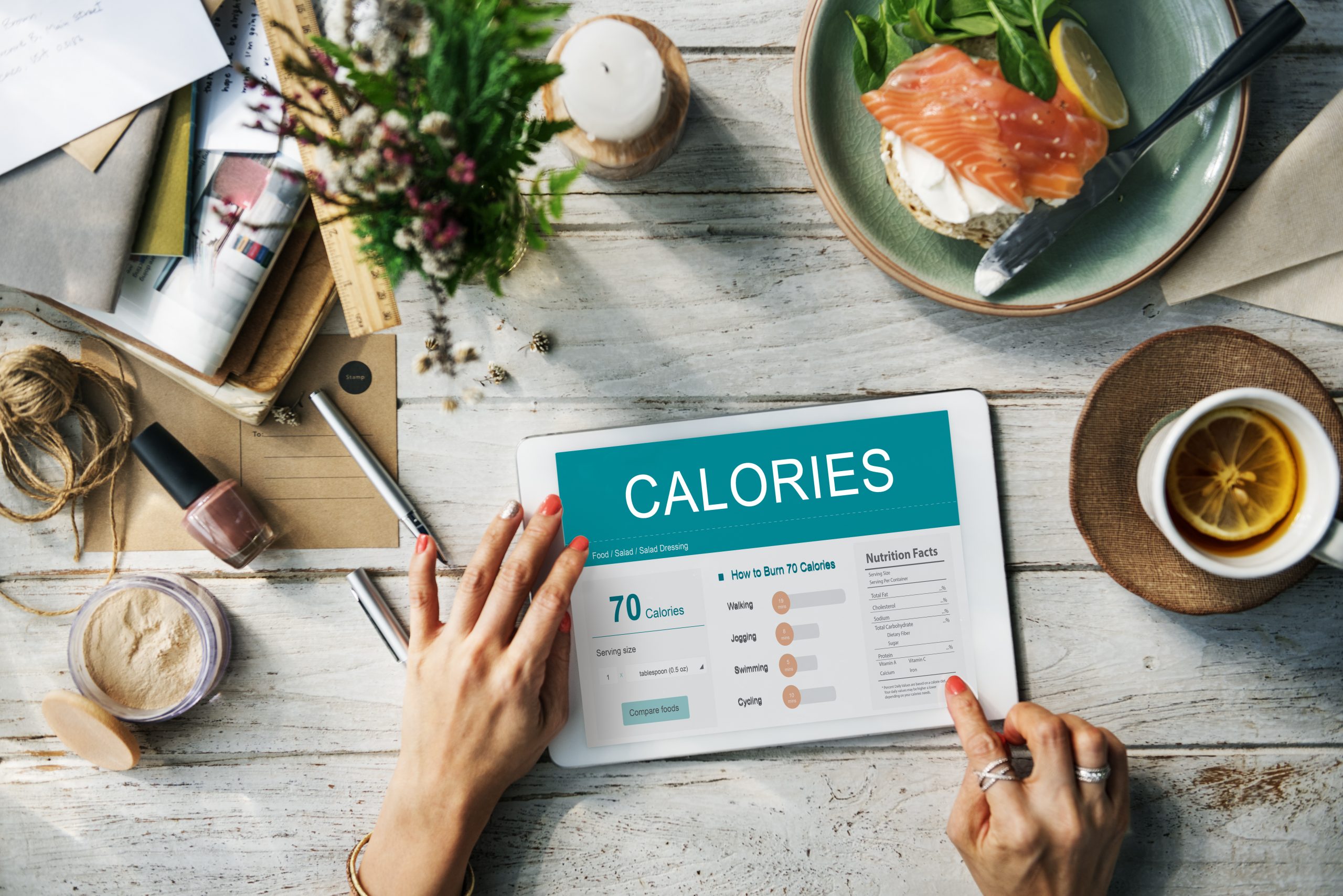
Tracking Macros For Weight Loss {The Diet Solution}
So what are macronutrients?
Mac • ro • nu • tri • ent – A substance required in relatively large amounts by living organisms, in particular.
A type of food (e.g., fat, protein, carbohydrate) required in large amounts in the human diet.
In other words, it’s the nutrients that build up our caloric intake, which we now know is the most influential factor of fat loss. And yes, Vitamins and minerals are important as well, but they’re “Micronutrients” because the size of them is literally smaller than macronutrients. Add to that, they do not have any caloric value to them and therefore they make a much lesser impact on fat loss compared to macros.
Macronutrients contain calories and when we add them up, they equal our total daily intake.
Protein has 4 calories per gram.
Carbohydrates have 4 calories per gram as well.
And Fats have 9 calories per gram.
(Alcohol has 7 calories per gram)
Now, alcohol is NOT a macronutrient… but most of us will argue and claim that it is our 4th macro. Because of that, I’m going to break this down briefly first since this blog is about finding the easiest diet to follow and alcohol is part of most of our lifestyles. If you want more info and details on how to fit alcohol into your diet – click here and check out my article all about fitting alcohol into your diet.
Alcohol is a chemical nutrient called ethanol, which is metabolized and processed in the body just as the other macronutrients are – however it takes priority in regards to the order in which they get burned. It has calories in it and those calories can add up quick, because it’s liquid form and it’s fun to drink. Because of this, it’s not recommended in frequent dosages when trying to drastically change your body composition nor is it recommended if you’re attempting to achieve maximal health – but some in low quantities is fine.
Alcohol essentially stops the body’s processes in an attempt to remove it, as if it’s a toxin in the body that must be removed. This is why it’s pretty much impossible to burn fat while drinking alcohol. You can avoid fat accumulation (gain) if you fit the alcohol in your calories, but assuming results will progress while being under the influence is simply not going to happen.
When tracking alcohol, you should include it within your caloric intake, or as closely as possible. The best way to go is to remove some fats from the diet that day to make room for the alcohol itself – because fats have more calories per gram, the way alcohol gets metabolized, and because fats are more likely to be stored as fat than carbs while in a calorie surplus.
Now that we’ve covered alcohol, we can move onto the important stuff (not that alcohol isn’t an important consideration to make here).
Why Macronutrients Important and You Shouldn’t Just Track Calories
Well technically yes, you can just track calories. As we know from earlier in this blog, energy balance is the biggest mover in fat loss or body composition changes in general which means if you’re in a deficit you will lose body fat and if you’re in a surplus you will gain weight.
But when we consider performance, optimizing recovery, creating hormonal balance, and building muscle – Macronutrients become very important.
Even more important than those reasons, is individualization. Macros are a tool that allows us to divide your personal caloric intake into a ratio that is not only better for your specific goal, but easier for you to personally meet on a daily basis. This is key because if you create a macro prescription that is great in theory but not in practice, you’re shit out of luck when it comes to long term consistency.
For most people reading this, you’re interested in more than just losing weight…
You probably have some kind of interest in building more muscle, lifting more weight, performing at a higher intensity or level (whether that’s crossfit or bodybuilding), or maybe you just want to get as lean as you possibly can.
Well in that case, you need to consider tracking and periodizing your macros.
Client {Case Study} Example
Let’s put this into practice, so you can better understand things at work.
Meet John, he wants to lose weight and just “get rid of his belly”. He commits to tracking calories but not macros, because he doesn’t want to over complicate things and he really doesn’t care about how much weight he lifts or how big his guns are.
He’s 5’ 10”, weighs 198lbs, 32 years old, and trains 4 days a week.
Now, meet Matt. He wants to lose weight too, but he also wants to build more muscle mass in the process so he can perform better in his pickup games and in the gym (he wants to build his bench up, like most guys).
By coincidence (not really) he is the same height, weight, and age as John! And he’ll also be training 4 days a week.
The difference here is, he tracks his calories and macronutrients. So we have full control over his entire intake, versus just his daily calories.
6 months later, they both reach their goals.
John has lost 33lbs! He’s down to 165lbs now, got rid of his belly and is much healthier than he once was. He consistently trained, but didn’t see any remarkable strength gains. He’s happy and healthy, that’s all that matters.
Matt has lost 27lbs! He’s down to 171lbs now, got rid of his belly and is also much healthier. The difference here is that he added #’s to all his lifts across the board! He’s now playing better than ever in his pickup games, added ½ inch to his arms, and built up his chest, back and shoulders significantly.
So what was the difference here?
Matt lost about just as much body fat as John, but he added 6lbs of muscle (or simply maintained more muscle, because at times doing both simultaneously isn’t always possible) in the process, which may not seem like much but is actually a significant amount of meat to slap on your body (think of 6lbs worth of steaks spread across your body, as muscle).
Matt was a little more disciplined with his tracking, because he did pay attention to every single macro vs. just his calories. John only looked at one number, which fit his lifestyle, personality, and goals better.
So the question to ask yourself is which do you fall under? Both are fine, they just build different physiques by the end of things.
See when we dial in the ratio of proteins, fats and carbs – we can have more control over how much muscle we build and/or maintain over time, which will allow us to not only burn more body fat and increase our metabolism, but it will also increase longevity and improve hormonal balance.
In my personal opinion and experience, tracking all the macros makes more sense and Tailors the result to you much better.
“What if I don’t care about how much I lift, but I do want to live longer and fix my hormones in the process of dropping body fat?”
This is common and there is a simple answer for it, one that meets both ways in the middle.
For these folks, you’re going to want to dial in your calories and your protein intake. Then just let your carbs and fats fluctuate, based on how you feel and what you crave more often. That way you get the benefits of protein being higher and still have your calories dialed in.
Will having all macros tracked and managed help you more? Absolutely. My point is that it’s not always required. This is a debate of Optimal vs. Practical. It’s no question that having your entire macronutrient spectrum dialed in is more helpful, but for some it’s just not feasible long-term.
So how do you figure out where to set your personal macros? Before we can do that, you need to know about each macronutrient so you can have a full understanding of why we set things the way we set them.
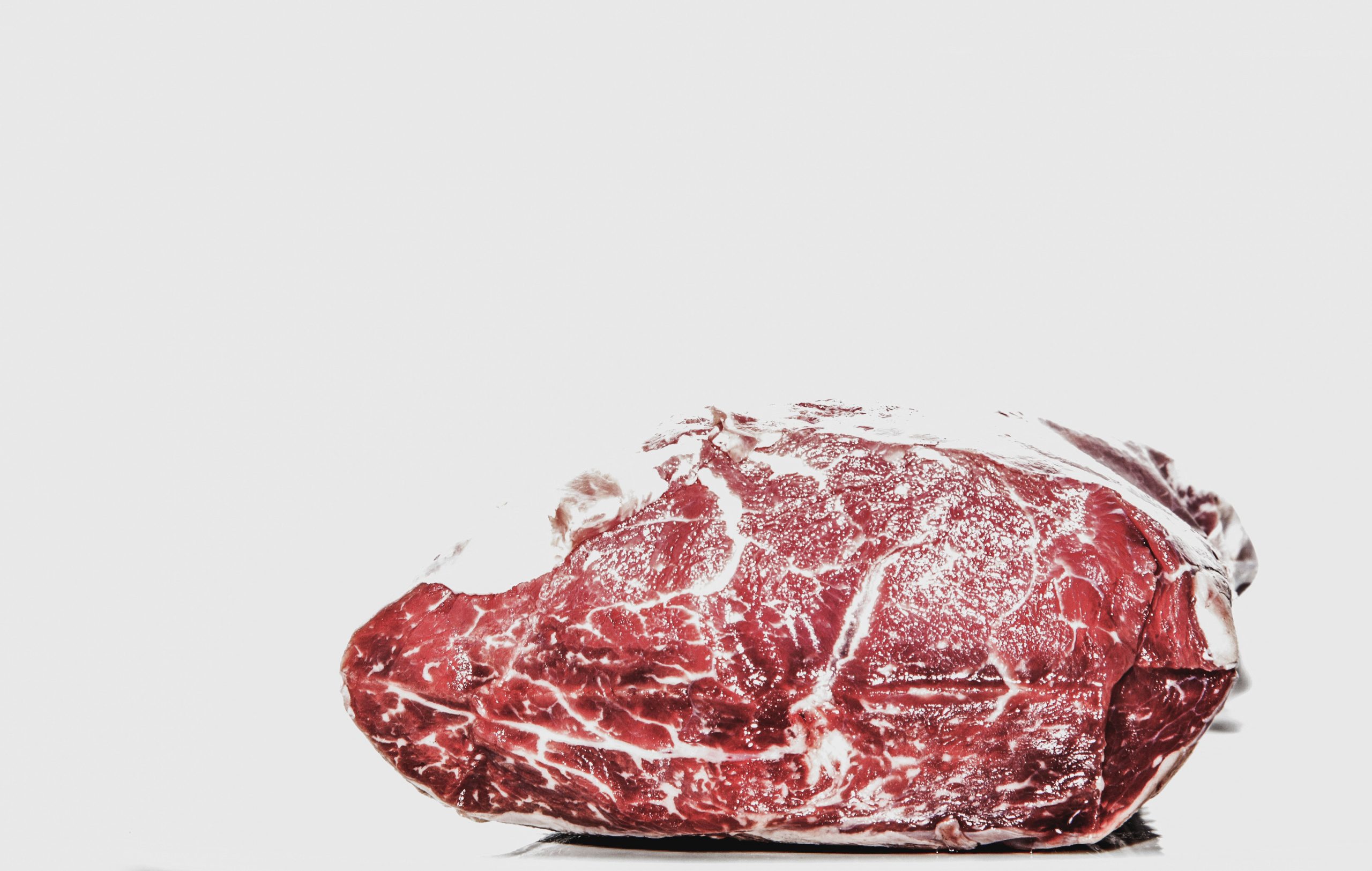
PROTEIN
Protein is debatably the most important macronutrient there is. The reason is simple; it’s an essential nutrient, which means you literally cannot survive without consuming it.
Protein is what helps us rebuild tissues and keep systems running, from the muscular and skeletal system to the nervous system and the immune system. Almost every function of the body needs at least some protein to function, manage and continue working.
We need protein for enzymes in our body, skin and hair growth, and many hormones like metabolism, adrenaline, testosterone, and growth hormone.
The point is, you need protein and when it comes to changing your body composition the biggest reasons are:
- Protein rebuilds muscle tissue which allows us to recover, train hard again, and build more muscle. The more muscle we build, the more fat our body will burn.
- Protein has a very high TEF (Thermic Effect of Food), which means it takes more calories to digest it. Yep, you actually burn calories just digesting protein. This is because it’s harder to break down and utilize than other nutrients and because of this, it’s smart to have a high percentage of calories coming from protein.
- Protein is extremely hard to store as body fat. It’s smart to burn fat while consuming as many calories as possible, which makes having protein higher even more valuable because it is damn near impossible to store as body fat. Now there is clearly an upper limit, you can’t just keep consuming more and more as you will have issues in your gut and possibly other organs of the body. But we do know that it’s necessary to have a larger percentage of calories coming from protein (30-40%).
- Protein is the most satiating nutrient you can consume. In other words, you stay full for longer when consuming it and as anyone who has ever been on a “diet” before knows, this is a very good thing. If we can keep you full and satisfied during a diet, adherence and consistency becomes much easier.
- So as you can see, you’re going to need to prioritize protein if you plan to drastically change your body composition – whether that’s for less fat, more muscle, better performance, or all the above.
[We also have an article breaking down protein beyond what any other free online article has done – can check that out HERE.]
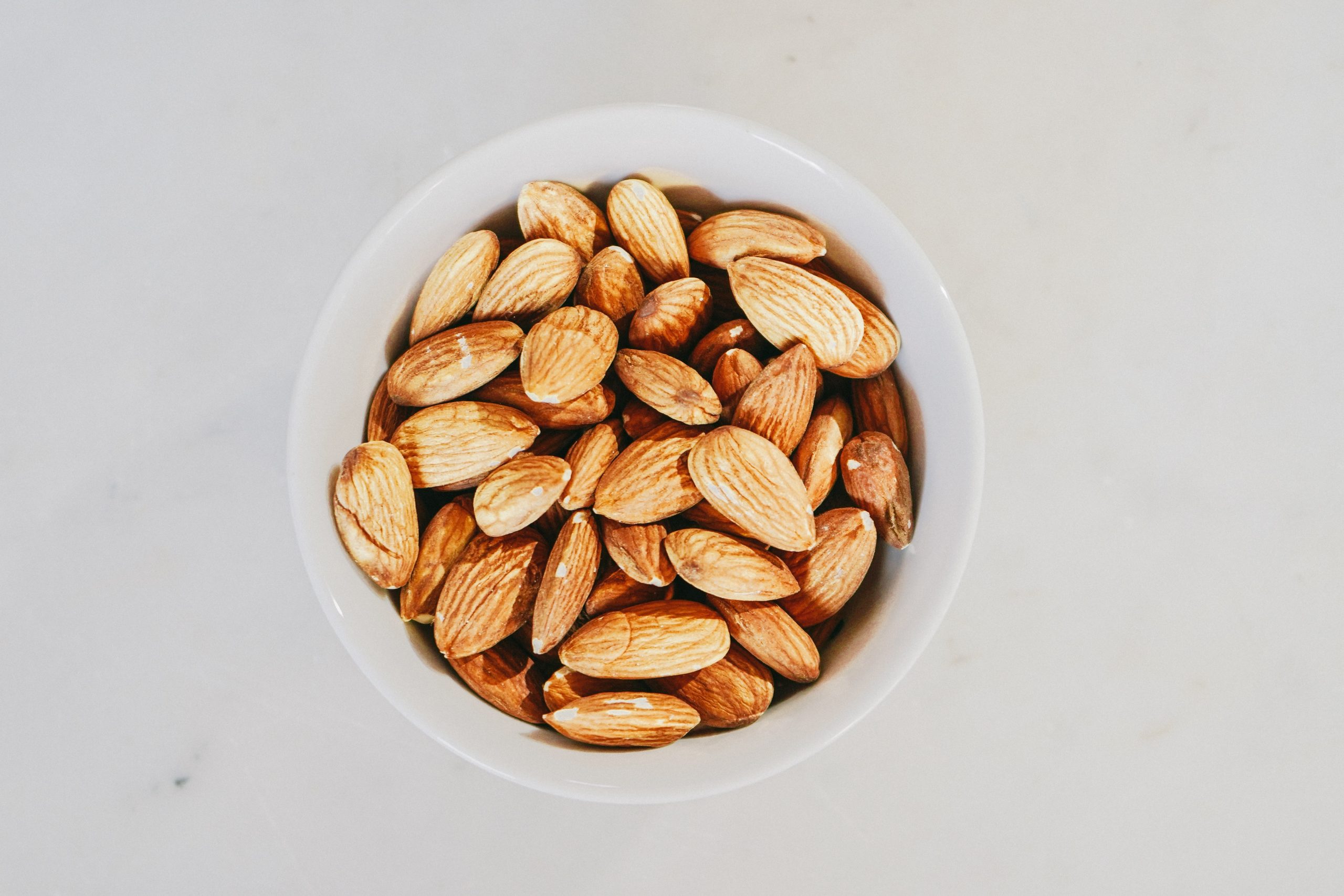
FATS
Fats are another essential nutrient, which is why we’re discussing this right after protein – you can’t live without it.
So technically you could just eat protein and fats for the rest of your life and you’d be fine. That’s why the ketogenic diet has become so popular as of late. But in my honest opinion, living “fine” isn’t good enough and I know with a balance of all macronutrients I can thrive.
That’s not a knock on keto diets, some people do function much better on them but from my experience and knowledge, the majority of people work better on a balance of all three macros.
So why are fats so important?
Fat is crucial for hormonal health, which is one of the biggest and most recognized reasons to consume an adequate amount of fat. This is one of the reasons why this is an essential nutrient, one you cannot live without.
Fat is primer for the nervous system and the axon, which is a major part of the nerve that transmits electrical signals from the brain throughout the body to initiate all functions, is made up of 80% lipids (fats). This means for full neurological capabilities and optimization, we need adequate fats in our diets. This, in my opinion, is the most underrated benefit of fats because when we look at building strength in any movement, it’s 80-90% neurological and without a primed nervous system strength is just not an option.
Fat is a secondary energy source. When we look at low intensity activities, things like walking or any other slow physical movement, and even daily activities, things like desk work and moving around the house, fat is our fuel source. It’s not great for explosive energy, but it’s great for daily energy needs when glycogen doesn’t need to be utilized.
Hopefully by now, you’re starting to see the benefits of considering more than just calories. There is so much to this macro game and when you can create an individualized approach to your nutrition, you win in the game of reaching results.
[Just like protein, we also have a full guide on Fats – check out the free article HERE.]
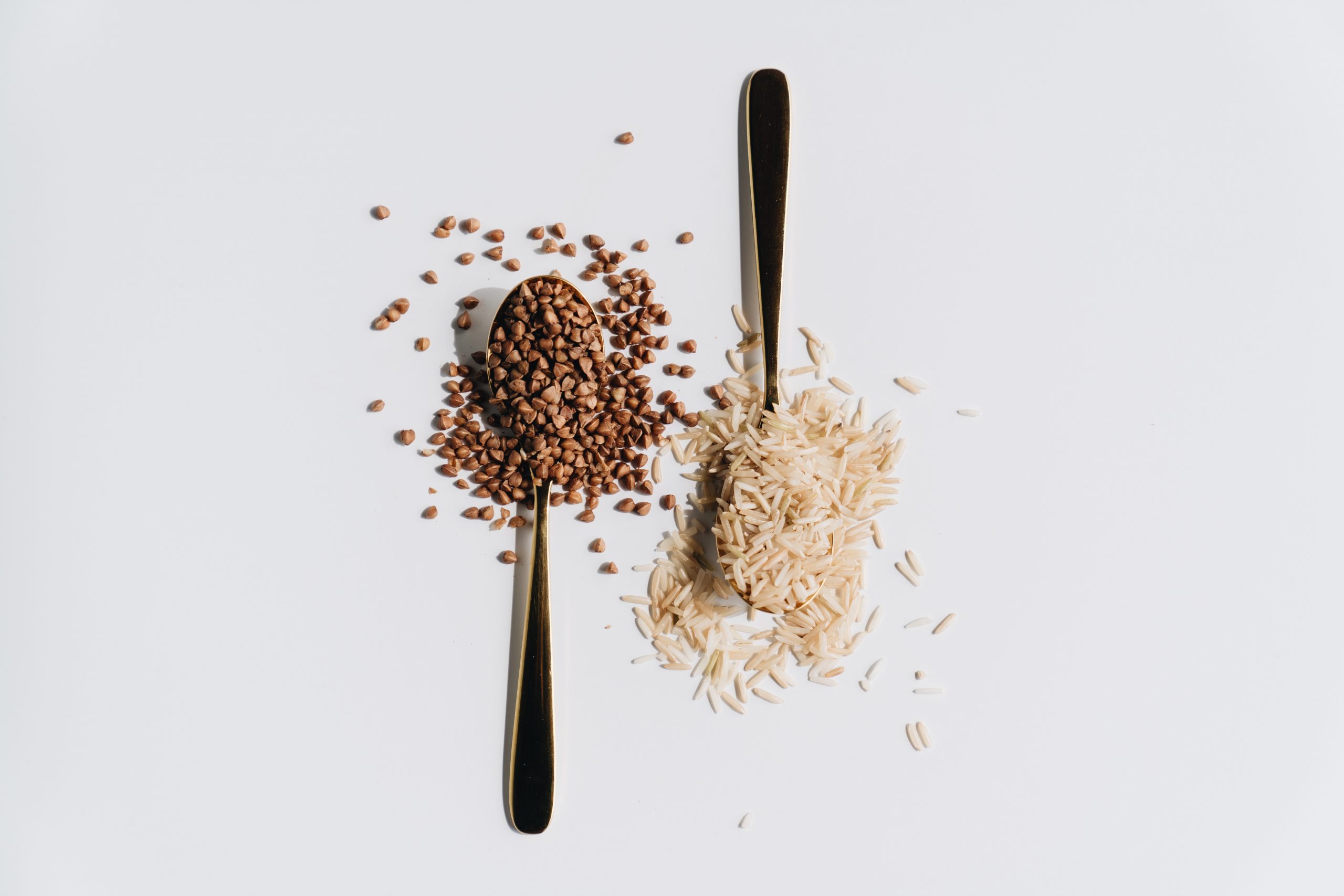
CARBOHYDRATES
We’ve discussed how important protein is and we’ve broken down how crucial fats are… So why do we need carbs?
“Because they’re tasty and I crave them, all the time …?”
No, not quite. Although that statement holds a lot of truth to many of the people reading this right now, it’s not why we should be consuming carbohydrates in our diet.
It’s because it creates balance and allows us to thrive. Each macronutrient has benefits and “duties” in our bodies, which allow us to live life at a much higher level. Which is why I don’t think we should neglect any of the macros. But here are some specific examples as to what carbs help with:
- Performance, first and foremost. Carbohydrates aren’t technically needed to survive and go about daily tasks and activities, but if you want to perform… then carbs are your fuel. Carbs are the body’s primary fuel source when it comes to higher intensity activities and muscles being able to actually work for us.
- Carbs are a part of the process to activate and produce ATP. In fact, as much as 80% of ATP production is derived from glycolysis (glucose production). ATP is a major component in anaerobic training – which is a major component in getting stronger and building muscle! This means that if we’re looking to maximally stimulate results through strength training, carbohydrates are a necessity.
- Research is limited, but there is also some evidence that leans towards the combination of protein and carbohydrates positively impacting muscle protein synthesis. MPS is the anabolic signal our body creates when we ingest protein as a nutrient or when we partake in resistance training. This is a major player in the game of building muscle and although the research is limited, many believe carbs DO play a role in boosting that effect rather than just carbs alone or just protein alone.
- Recovery is another huge reason and although protein is the number one source for this, carbs help replenish muscle glycogen for future performance and actually can help rebuild muscle tissue when protein isn’t available or is scarce, because it’s a protein sparing nutrient.
- Hormonal health. Even though fats are known as the big mover for hormonal balance, if we do not consume enough carbs we risk negatively impacting hormones like leptin, ghrelin, the thyroid, and even the adrenals. Mainly hormones revolving around metabolism and energy/fatigue (adrenal glands). Now you can keep those regulated and balanced on a low carb diet, it just becomes a bit harder and if you’re in a situation where your adrenals are already in pretty bad shape… you want to make sure you include a decent amount of carbohydrates into your diet. The biggest regulatory factor with keeping hormonal health high, is making sure you’re not in a serious caloric deficit for too long – so all the macros matter!
- It is the easiest way to get enough fiber in your diet, because 75% of fibrous foods are also carb dense foods. Whether that’s from veggies or fruit or whole-wheat grains, typically more carbs will lead to more fiber. Fiber is essential for health… But we’ll get to that later.
- Carbs are practically everywhere… And as much as that’s kind of a joke, it’s also somewhat true. Often when we look at social settings or eating with friends/ family, carbs are included. So if we remove them completely, normal life just gets harder. Having a balanced diet with carbohydrates included in, allows us more freedom and flexibility that more importantly leads to more adherence and consistency.
That covers it for carbs, but if you want even more detail – read this article on 7 Things You Didn’t Know (But Need To) About Carbs or this article on The Scientific Approach To Carb Cycling.
But before we move on, I do want to go back and reflect on something a bit more…. Performance.
Performance is the number one thing that will lead to body composition changes, from a strength and muscular standpoint. See nutrition is by far the biggest mover for fat loss – if you don’t focus on it, you’re not going to get far. But if you’re not training hard, then you’re not going to create long-term results or a body that you truly can be proud of.
Why? Simple, food doesn’t stimulate muscle growth to a meaningful enough degree. However, intense training does. Which means not only do we need this to grow
muscle but also to create more definition during a cut, by maintaining as much muscle as possible while in a deficit.
So if we can utilize carbohydrates in our diet in order to train much harder, then we will build/maintain more muscle, increase hormonal production, burn more fat, and even just burn more calories per session – because we have more energy!
That is why the term, “Eat less, move more” makes sense from a scientific and theoretical standpoint. Because yes, less calories in and more calories out means you will burn fat – but after a certain period in time, your body will adapt and become more efficient, which leads to less caloric expenditure. This is the metabolic and/or thermogenic adaptation theory.
My best advice to you, the person reading and wanted to shred as much body fat as possible, is to really pay attention to the periodization section of this book because that’s how you’re going to be able to treat fat loss like a thermostat – turn it up when needed and turn it down when needed, implementing cuts and maintenance blocks to avoid this adaptive thermogenesis.
And instead of constantly focusing on “Eat Less, Move More”, the idea I like to instill into my clients at the beginning is “Eat more, train more” because it prepares them for the long-run.
This way, everything is thriving and although it may take a little longer for fat and weight to start falling off your body… the results will last MUCH longer and they will be MUCH more prominent, because you prime your body before dropping into a big deficit.
(When it comes to building muscle, eating more and training more is the ONLY way to go…)
MACRO CALCULATORS AND FINDING YOUR MACRO INTAKE
So now you know everything you really need to know when it comes to what macros are and why they’re important, together and individually. So what’s next?
Next is breaking down where you should be at with each macronutrient.
However, that would be an entirely new blog in itself or require coaching! Calculating macros is much more difficult than simply running through a formula or using an online macro calculator that spits out some numbers to follow.
Both of those can give you a place to start, but the consistent action and experience of tracking macros is what allows you to fully understand and develop knowledge around what your body needs. That’s where the adjustments along the way come in and play a role in the results you see.
And lucky enough for you… I wrote an entire nutrition manual on that!
Better yet, I decided to give it away completely free – 87 pages of nutritional information that is worth thousands of dollars in education, yours free. Just click the image below:
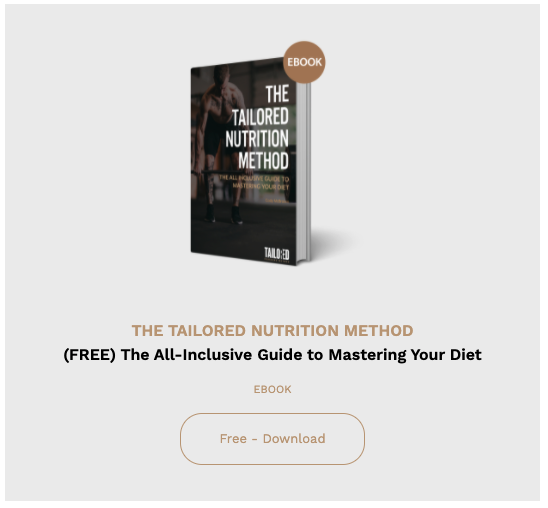
CONCLUSION
At this point, there’s not much to conclude on that can’t be found in the free guide above. So I highly recommend you grab your copy of that and start studying up on how macros can work for you.
Outside of that, the key point of this article should be pretty simple…
Calories are king.
Every fad diet and dogmatic nutritional approach that is marketed well enough to trick people into following along boils down to a calorie deficit, if it actually works. And 9 times out of 10, they only work temporarily due to being overly restrictive and unsustainable.
Using macros as a dietary tool allows you to abide by the law of thermodynamics (calories in vs. calories out), while also customizing the foods, flexibility, and fuel demands your body, training, goals, and lifestyle need.





























































